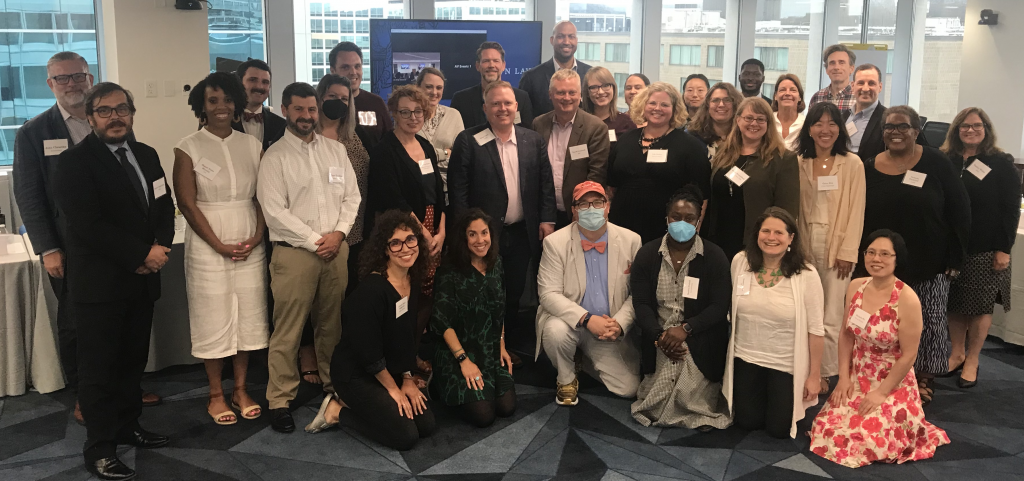
Thought leaders from libraries, academia, and civil society gathered at Georgetown Law Center in Washington, D.C., on June 23 to discuss how to best advance policies that improve the ease, affordability and equity in how people access knowledge in the digital age.
Convened by the Internet Archive, this workshop was designed as a continuation of a conversation that the public interest community, including Internet Archive, Creative Commons, Public Knowledge, Library Futures, and the Wikimedia Foundation, started last summer around building a better internet centered on public interest values.
While U.S. lawmakers’ focus on internet policy has largely been directed at reigning in the “Big Tech” commercial platforms, this workshop took a different approach. Rather than centering the challenges with today’s for-profit, commercial platforms, the workshop centered the barriers libraries face and potential opportunities for them to help solve challenges with our digital information ecosystem.
Our hope as organizers was that we could map the terrain, find common ground, and identify areas for further discussion. And even in a short amount of time, we were able to do that in spades. Here are a few of our key learnings, and what’s next.
Key Opportunities
Participants recognized that libraries could fill an important gap in the current online environment, as they have done for hundreds of years offline–indeed, providing free access to high quality, trusted information is libraries’ primary mission. As our information ecosystem becomes increasingly digital, the world often looks to libraries to do even more. For instance, scholar Joan Donovan has suggested that platform companies hire 10,000 librarians to help curate their services and support access to quality information. Others have suggested libraries could be doing fact checking, building and hosting social media networks, and more. One important way to combat misinformation is with better information provided by libraries; however, this is not without its challenges.
Key Barriers
Participants identified two significant barriers for full library participation in the digital information ecosystem as media consolidation and copyright overreach by powerful publishers. The group discussed a wide range of possible solutions to these challenges including antitrust scrutiny, contract preemption, supporting a robust public domain, controlled digital lending, and digital ownership.
The group was motivated by a desire to serve the public over commercial interests, and expressed their commitment to making sure equity was woven through all proposals in a thoughtful and authentic manner. Libraries support access to information and creative empowerment for all. We understand that a better internet must work for everyone, including underserved and vulnerable populations.
As the organizers of this event, we are very grateful to all the participants for contributing their time and expertise to this effort. Up next, we will hold virtual workshops to include additional members of the community in these discussions followed by the publication of a longer report with our findings and policy recommendations. Stay tuned for future updates as this effort moves forward.
“For instance, scholar Joan Donovan has suggested that platform companies hire 10,000 librarians to help curate their services and support access to quality information. Others have suggested libraries could be doing fact checking, building and hosting social media networks, and more. One important way to combat misinformation is with better information provided by libraries; however, this is not without its challenges.”
Libraries in general have gone hard left in the last 50 or so years. I wonder if the fact checking will go the way of many other left wing entities: The information– even though subjective or controversial– which is not agreed upon, becomes misinformation, and therefore is banned. A very slippery slope indeed. We already see this in brick and mortar libraries where a deliberate and self-serving censorship is in full swing and has been for quite some time. Lately the call for censorship is deafening, and frightening. Diversity it seems is only good when it is a particular kind of diversity; otherwise it must be eliminated.
Ok
^ ^
Great !
Good
หา